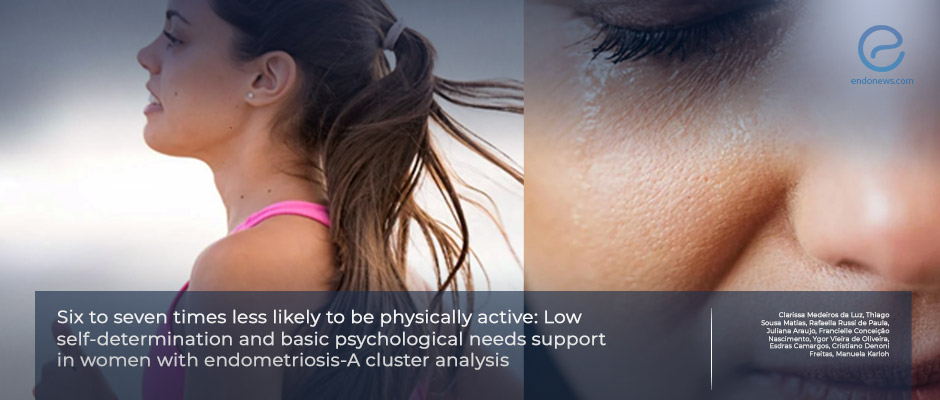Women with Endometriosis Need Motivation-Focused Exercise Plans
Oct 29, 2025
Motivational Support Improves Exercise Engagement in Endometriosis
Key Points
Highlights:
- Women with endometriosis who experience lower self-determination and reduced support for autonomy, competence, and relatedness are significantly less likely to engage in physical activity.
- Addressing motivational and psychological factors is essential to improving exercise adherence in this population.
Importance:
- Exercise can help alleviate pain and improve quality of life in endometriosis, but long-term adherence remains low.
- These findings highlight the need to assess motivational profiles and psychological needs when designing physical activity programs for women with endometriosis.
What's Done Here?
- An online cross-sectional study including 508 adult women with endometriosis was conducted.
- Participants completed validated questionnaires assessing motivational regulation, autonomy, competence, and relatedness.
- Associations between motivational profiles and physical activity participation were analyzed.
Key results:
- Women with reduced self-determination and low psychological need support were 6–7 times less likely to engage in physical activity compared to those with high self-determination.
- Motivation and perceived psychological support were strong predictors of exercise participation.
- The results suggest that tailored, autonomy-supportive interventions may increase adherence to physical activity in endometriosis.
Limitations:
- The online recruitment method may have favored participants already connected to endometriosis support networks.
- Self-reported diagnosis and physical activity levels could introduce response bias.
- As a cross-sectional study, it cannot assess changes in motivation or behavior over time.
From the Editor-in-Chief – EndoNews
"Physical inactivity remains a critical challenge for women with endometriosis, despite its recognized benefits for pain control, mood, and overall well-being. This study from Brazil provides compelling evidence that motivation and psychological support are central determinants of exercise adherence in this population. The six- to seven-fold reduction in participation among women with low self-determination underscores the profound influence of autonomy, competence, and social connection on behavioral engagement.
Beyond the biological dimensions of endometriosis, these findings bring attention to the psychological and motivational barriers that must be addressed in care models. Traditional recommendations to “be more active” are insufficient without understanding each patient’s motivational profile. Future exercise interventions should be personalized, autonomy-supportive, and multidisciplinary, integrating physiotherapy, psychology, and patient education.
By linking psychological theory with clinical application, this work highlights that effective endometriosis management extends beyond symptom relief—it must also empower women to sustain behaviors that enhance quality of life."
Lay Summary
Women with endometriosis who experience low motivation and limited psychological support are six to seven times less likely to engage in physical activity, according to a new study by researchers in Brazil. The findings highlight the need for tailored interventions that strengthen motivation and help women maintain regular exercise routines.
To explore how motivational factors influence physical activity, a team led by Dr. Manuela Karloh from the Center for Assistance, Teaching, and Research in Pulmonary Rehabilitation at Santa Catarina State University conducted an online cross-sectional study of 508 adult women with endometriosis.
Participants completed two validated questionnaires: the Behavioral Regulation in Exercise Questionnaire-3, which assessed motivational regulation, and the Basic Psychological Needs in Exercise Scale (BPNES), which measured autonomy, competence, and relatedness. Using cluster analysis, the researchers identified distinct motivational profiles.
Women in the “controlled and thwarted” cluster—those with low self-determination and poor psychological need support—were significantly less likely to engage in physical activity compared to those in the “autonomous and need-satisfied” cluster, who were driven by personal interest and intrinsic motivation.
The authors emphasized that future longitudinal studies using more representative samples and objective physical activity measures are needed to confirm these results.
The study was published in the journal PLOS One.
Research Source: https://pubmed.ncbi.nlm.nih.gov/40857255/
exercise behavior psychology

